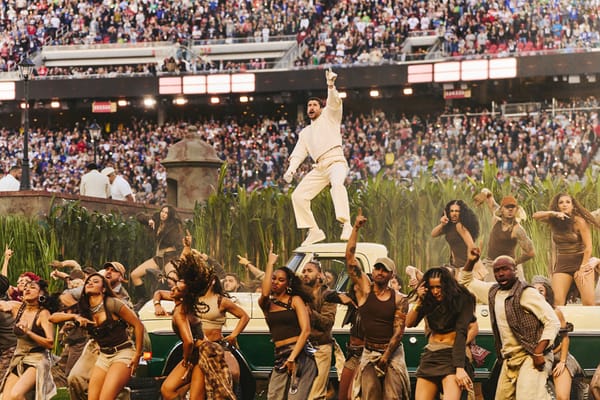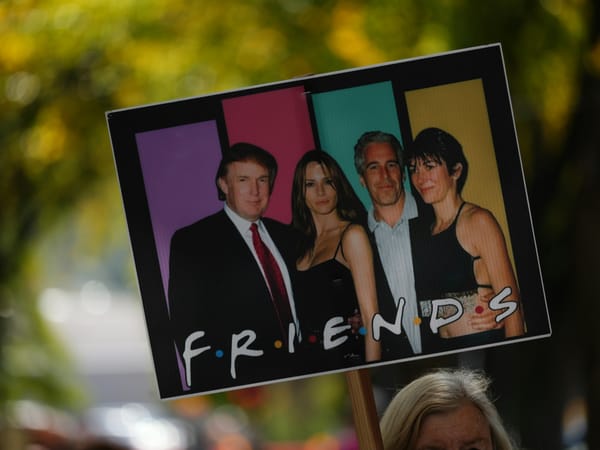The Calculated Discomfort of Queer (2024)

Queer (2024) is a dizzying depiction of the disjointed existence of Lee (Daniel Craig), an expatriate living in Mexico City, whose life has been consumed by fervent drug use and lust. The film is an interesting experience, to say the least, especially given the grip that Call Me By Your Name (2017) and northern Italy had on my adolescence. The morally grey affair within Call Me by Your Name, seen through Elio's (Timothee Chalamet) eyes, was hypnotic and alluring, and I returned to it time and time again, sucked into every detail of a reality that existed detached from my own. Each re-watch is seen with newer, more mature eyes, and I am no longer so deeply affected by the film's romantic forefront, but consumed by nostalgia and the essence of the lifestyle that the film entailed. This was a misleading conjecture, and I ended up developing hyper-specific expectations of Luca Guadagnino, ones that weren't challenged by his 2024 film Challengers (2024). My senses had been watered down with apricot juice and the Italian countryside, and fraught dynamics appeared picturesque via peach-tinted sunglasses. Narratives appeared to me as objective, even when they were completely unreliable and told through the perspective of a victim. I sat down for Queer with similar expectations, to find myself imbued with tender heartache and a picturesque existence just out of reach, and found myself thrown into a world unlike my anticipations.
Queer diverges from expectations because it isn’t exploring a concept completely unbeknownst to a modern audience, but somehow, still feels like it is. As time passes, our society becomes increasingly open-minded, and heteronormative expectations aren't enforced as strictly as they've been in the past. We’re no longer shocked by depictions of queerness in media and film. Queer doesn't break boundaries in that it pioneers a revolutionary representation of sexual orientation, although any well-done portrayal does productive work, but its unique setting and instances make viewers actually sit in a reality that isn't universally experienced. The relationship between Lee and Eugene (Drew Starkey) isn't itself troubling, their relationship lacking a questionable age gap, but the historical stigma that surrounded queerness in the 50s oozes from every corner of their dynamic, and is further twisted by the whims of each respective character. Lee becomes infatuated with the enigmatic Eugene, and relentlessly courts him, attempting to convince him of his queerness, even when he is just as unsettled by his identity as Eugene is. Lee does not shy away from his identity, not so much internally tormented by his sexuality, but by the fact that he is a shell of a human, existing without purpose, his days marked by substances and instances with younger men. Eugene is not so much a character as he is a figment of Lee’s own existence, and Drew Starkey is unbelievably charismatic as the young romantic interest, even though his lines are scarce, emotions persistently unreadable. Eugene doesn't come across as an object, where his sole purpose is a function of Lee’s arc as a character, but his objectification is far more complex than that. Lee doesn't purposefully see him as an object, but Eugene refuses to exist as anything else, painfully refuting Lee with guarded sentiments and unfeeling eyes.
While Eugene struggles to acknowledge his own sexuality, as a viewer, it's hard not to see his treatment of Lee as not just due to his conflicting identity, but as a result of Lee’s trepidatious behavior. The uncomfortable energy that's manifested by the film is due to its queer context, but not in the ways one would expect. Lee’s character is inherently tragic. He is both pitiful and embarrassing, and one is constantly thrown between the two reactions as he attempts to pursue Eugene. His addiction is a steady obstacle that permeates the already troubled connection between the two men. The film takes a turn when, in an attempt to reach past Eugene's cold exterior, Lee seeks out the elusive ayahuasca, known for its supposed telepathic abilities. He struggles with withdrawals, physically strung out by his addiction, and the film doesn't shy away from the tragic reality of his condition. Watching this sequence, along with many others, is a battle between reminding yourself of compassion, while also being unable to deny the cringeworthy tendency of certain interactions. Guadagnino paints a delicate line that’s not only a feat of sensory detail, evoked through strange and dream-like visuals, seen during the bizarre psychedelic sequence, but emphasized by the complexities of Lee’s character, who represents the polarizing experience of queerness even when he’s comfortable within his sexual identity. The strenuous tendency of Lee’s gaucheness isn't just crucial to his character, but to the communication of the experience itself.
Queer is both visually and thematically uncomfortable, representing the troubling conditions of the queer existence within the hyper-specfiic setting Guadagnino elucidates. The primary problem people had with Call Me by Your Name was that the romantic, age-gapped relationship was romanticized to the point where its immorality ceased to exist. Its as if Guadagnino heard these gripes and made Queer with these complaints in mind: the film becomes a redemption, one which shows the audience how uncomfortable Guadagnino is capable of making them, even without certain immoralities. The complicated dynamics of the queer reality are so deeply embedded within Queer that it is shocking, longing and desire inciting a dizzying descent into vexation, and while unrest isn't usually what you'd expect when walking into a theatre, it's the reaction that needed to happen. Where Call Me By Your Name is melancholic and lilting, Queer is harsh, the character's desperation and tribulation all the more palpable. The texture of the film's tragic proclivity reaches so close to the audience that it becomes almost unbearable, and in doing so, the film communicates a lived experience unlike any other.




